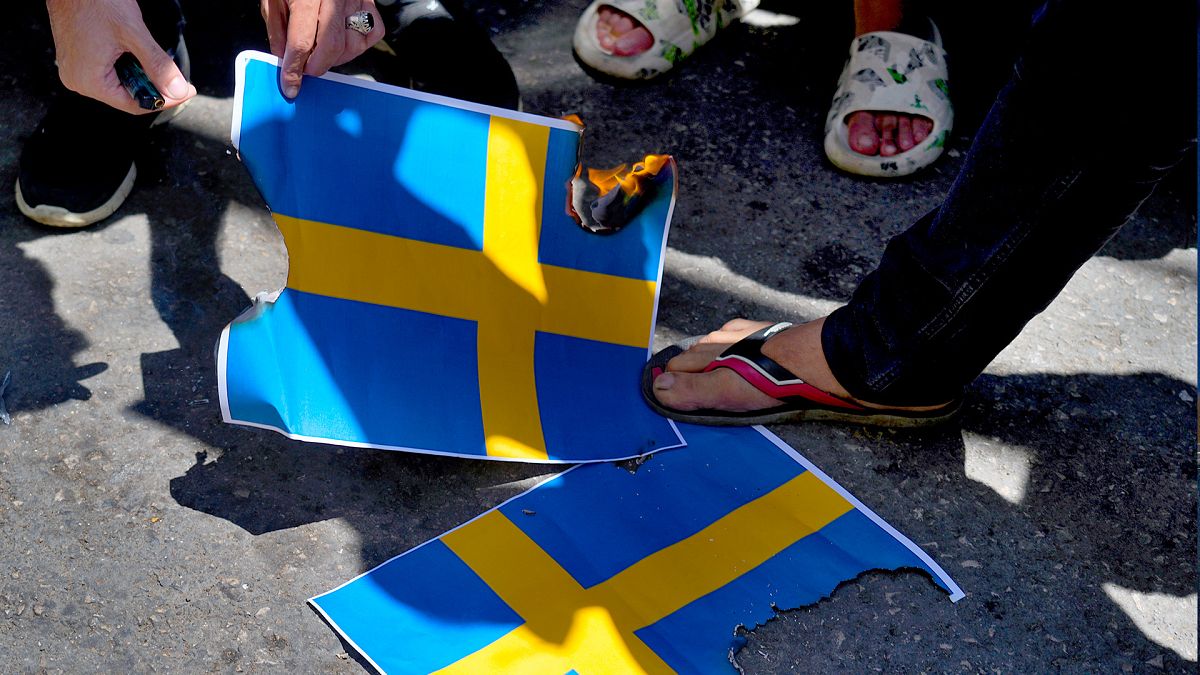Recent years have seen a surge in anti-Iran protests in Sweden, with authorities blaming the Islamic Republic for inciting an international backlash. Swedish officials have accused Iran’s paramilitary Revolutionary Guard of carrying out a data breach to send thousands of text messages calling for revenge over the burnings of the Quran. The Iranian state was allegedly behind the breach at a Swedish company that runs a major SMS service, sending messages in Swedish to around 15,000 individuals. While the Swedish company involved was not named, Iranian authorities have not yet responded to the allegations.
In August 2023, Swedish media reported that many people in the country had received text messages in Swedish urging revenge against those who burned the Quran. The messages, sent by a group called the Anzu team, called for those responsible to have their work covered in ashes and referred to Swedes as “demons.” The protests that followed the Quran burnings were permitted under Sweden’s freedom of speech laws, but also sparked controversy and led to the detainment of several individuals. This incident highlighted the delicate balance Sweden faces between free speech and respect for religious minorities.
In May, Sweden’s domestic security agency, SAPO, accused Iran of using criminal networks in Sweden to target Israeli and Jewish interests in the country. SAPO claimed that the intent of the text messages was also to paint Sweden as an Islamophobic nation and sow division within society. Expressing concern over foreign powers exploiting vulnerabilities, SAPO’s operational manager warned of escalating aggression and polarization, without naming any specific country. Justice Minister Gunnar Strömmer emphasized the seriousness of a state actor like Iran destabilizing Sweden or increasing division within the country.
Unlike many Western countries, Sweden does not have blasphemy laws or specific regulations against the burning or desecration of religious texts like the Quran. Despite the suspected involvement of actors linked to a foreign power, the lack of conditions for prosecution abroad or extradition to Sweden may hinder legal action against those behind the data breach. Senior prosecutor Mats Ljungqvist clarified that the end of the preliminary investigation does not rule out the possibility of reopening the probe in the future. SAPO’s concerns about escalating aggression from foreign powers and their impact on Swedish society highlight the need for vigilance and diplomacy in addressing such threats.
The allegations against Iran and the subsequent protests in Sweden underscore the challenges posed by international interference and misinformation campaigns. The accusations of state-sponsored cyber attacks and manipulation of public sentiment highlight the need for robust cybersecurity measures and diplomatic efforts to address such threats. As Sweden grapples with balancing freedom of speech and respect for religious beliefs, the government faces the task of safeguarding democratic values while countering external pressures seeking to exploit internal divisions. The response to the anti-Iran protests and alleged data breach serves as a reminder of the importance of upholding transparency, accountability, and international cooperation in safeguarding national security and societal harmony.


























